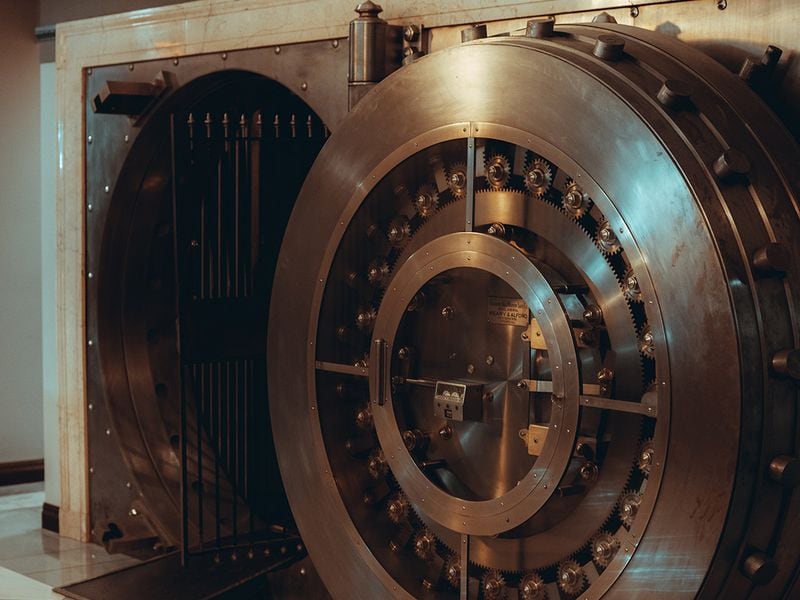SEC’s Temporary Restraining Order Would ‘Effectively End’ Binance.US Business, Company Claims
A Securities and Exchange Commission (SEC) Monday effort to freeze Binance US’s funds is a “draconian and unduly burdensome” move, the U.S. affiliate of the global crypto exchange argued Monday.
“If the Court does address the merits of the SEC’s motion, it should deny that motion. The SEC seeks unnecessary and unjustified relief. Far from requesting relief that is ‘carefully calibrated’ to ‘maintain[] the status quo’ … the SEC’s proposed remedies would effectively end BAM’s business,” Binance.US’s motion argued.
BAM Trading Services is the name of the entity behind Binance.US. According to the SEC, it is owned by BAM Management US Holdings, which in turn is mostly owned by Binance founder Changpeng “CZ” Zhao.
The SEC sued Binance, Binance.US and Zhao last Monday on allegations that the companies operated as an unregistered securities exchange, broker and clearinghouse all in one to allow U.S. customers to buy and trade certain cryptocurrencies that the regulator claimed were unregistered securities. The SEC also alleged that Binance (the global exchange) and its founder Zhao were able to access Binance.US’s customers’ funds, moving millions to entities like Merit Peak and Sigma Chain – two companies owned by Zhao.
The SEC filed for a temporary restraining order to freeze these funds until Binance.US was able to prove that no one at Binance, including majority owner Zhao, could touch them.
Binance and Binance.US had already denied the claims in blog posts and tweets last week, but Monday marked a court-ordered deadline for a formal response. The U.S. District Court for the District of D.C. will hold a hearing on the motion on Tuesday, June 13 at 2:00 p.m. ET.
In Monday’s filing, Binance.US’s attorneys wrote that freezing its funds would “primarily harm BAM’s customers, effectively put BAM out of business, and prevent BAM from defending itself in this litigation,” as it could no longer pay its employees, vendors or other parties or even maintain its technology.
The freeze may also spook Binance.US’s banks, one of which has already announced it would cease doing business with the firm, the filing said.
Binance, Binance.US and Zhao have added their legal counsel to the court docket over the past week, including George Canellos, a former Department of Justice prosecutor and one-time SEC Division of Enforcement co-director.
Binance.US proposed an alternative stipulation it urged the judge to sign off on, which calls for the company to repatriate all assets to BAM Trading’s “possession, custody and control,” affirm that only Binance.US employees have access (which would exclude Zhao) and ensure that no one from the global Binance exchange can access these funds.
Within two weeks, Binance.US would have to transfer all funds to new wallets.
Binance.US’s proposed stipulation would stop short of the SEC’s sought-after full asset freeze, allowing the company to continue paying employees and vendors but preventing it from paying any other Binance entity.
The Binance.US filing also hinted at the company’s opposition to the broader SEC lawsuit, saying the SEC has “not identified a single security trading on BAM’s platform.”
“The SEC suggests that it is a foregone conclusion that cryptocurrency is a security, but that is not the case. That numerous cryptocurrency exchanges, including BAM, have operated in the United States for years without interference by the SEC belies the claim that they are clearly covered by the securities laws,” the filing said.
The SEC didn’t show that Binance.US sold BNB as an investment contract, the company’s filing claimed, despite BNB being the only asset it pointed to on the Binance.US platform as being an unregistered security for the SEC motion’s purposes.
It also quoted SEC Chair Gary Gensler, who said there is no regulatory framework for cryptocurrencies before Congress in May 2021, though Binance.US’s filing truncated the chair’s quote.
“I do think that working with Congress, and I think it is only Congress that could really address it, it would be good to consider, if you would ask my thoughts, to consider whether to bring greater investor protection to the crypto exchanges,” Gensler’s full quote said. “And I think if that were the case, because right now the exchanges trading in these crypto assets do not have a regulatory framework either at the SEC, or our sister agency, the Commodity Futures Trading Commission, that could instill greater confidence. Right now, there is not a market regulator around these crypto exchanges, and, thus, there is really not a protection against fraud or manipulation.”
Monday’s filing also echoed Binance and Binance.US’s public statements in saying the company had been cooperating with the SEC prior to last week’s enforcement action.
“Until very recently and despite being provided with substantial information about BAM’s custody of assets, the SEC did not express to BAM any of the concerns animating its motion,’ the filing said. “This was unsurprising given that there is no evidence that BAM customer assets have been misused or mishandled. Over the past several weeks, the SEC inexplicably began to focus on the custody of BAM’s assets, and BAM continued to cooperate in good faith, working around the clock to address the SEC’s questions.”
In a joint memorandum supporting Binance.US’s filing, Binance Holdings and Zhao argued that “there is no risk to [Binance.US] customer assets,” and said there was no need for an emergency action.
Like Binance.US, this filing, also published Monday, argued that the SEC had allowed Binance and Binance.US to operate since their respective launches without previously bringing any kind of enforcement action.
“Why did the SEC let these platforms grow to their current size if it was always illegal?” the filing asked. “And how is it that the sudden ’emergency’ happens to coincide with the SEC’s assault on the crypto industry as a whole, with Binance and Coinbase being sued on back-to-back days?”
The SEC had not previously raised any concerns about Binance.US’s assets or Zhao and Binance’s access, the filing claimed, later saying the first time a concern was raised was May 30, 2023 – or in other words, mere days before it sued.
Moreover, the SEC’s charges are of registration violations and control person issues, not that funds were misused, the filing claimed.
Binance also disputed SEC allegations that it was a clearing agency or an exchange for the SEC’s purposes, saying it “does not operate Binance.US” and instead acts as a service provider for the U.S. crypto trading platform.
UPDATE (June 12, 2023, 21:20 UTC): Adds additional detail from filing, including Binance.US’s proposed stipulation.
UPDATE (June 12, 21:50 UTC): Adds Binance Holdings filing.








